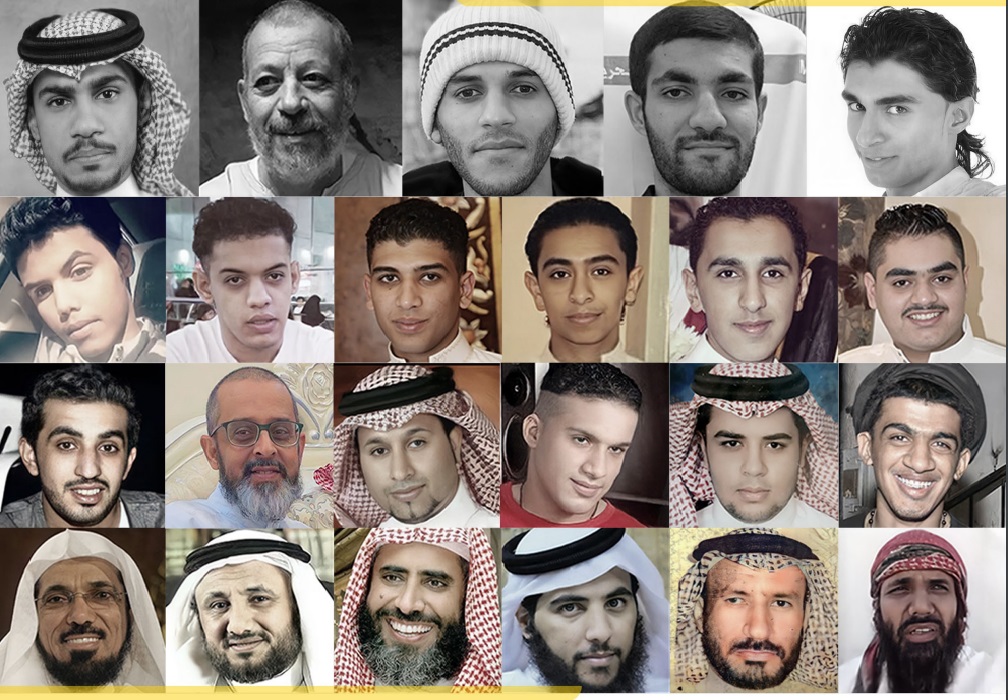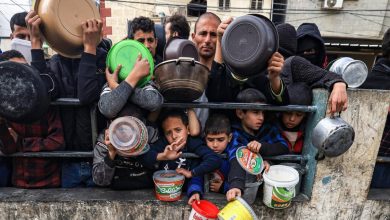The actual numbers are higher than that, and the organization did not rule out the possibility that the number of executions is higher. The official Human Rights Commission had stated that the number of executions in 2022 was 29% higher.
According to the International Amnesty Organization, Saudi Arabia executed 196 death sentences, while the official news agency published data confirming the execution of 147 individuals.
Saudi Arabia executed death sentences against 134 Saudi nationals, constituting approximately 78%.
The rest of the individuals executed in Saudi Arabia had various nationalities. Regarding executions of foreigners in the Kingdom, the organization recorded: 8 Yemenis, 8 Bangladeshis, 4 Pakistanis, 4 Indians, 2 Bahrainis, and 2 Egyptians.
Other executed individuals included: 1 Filipino, 1 Nepali, 1 American, 1 displaced person, 2 Sudanese, 1 Ethiopian, 1 Palestinian, 1 Ghanaian, and 1 Jordanian.
The percentage of females executed in Saudi Arabia increased, with 6 women executed, constituting 3.4%, compared to a percentage of 0.69% in 2022, and similarly in 2021.
Ridiculous Charges
According to data from official announcements and various human rights reports, 30 of the executed death sentences were issued by the notorious Specialized Criminal Court, which deals with terrorism cases.
The court used laughable arguments and charges to criminalize activists, and only 8 of these sentences included charges related to murder.
Thus, more than 70% of the death sentences in the Specialized Criminal Court are based on charges that are not considered the most serious under international law, such as premeditated murder.
The charges mentioned in the data from the Ministry of Interior included throwing Molotov cocktails, harboring wanted individuals, dealing with wanted individuals, illegal exit from the country, and possession of weapons.
The Saudi authorities executed Bahrainis Jafar Sultan and Sadeq Thamer, whom the UN Special Rapporteurs had urged the Saudi government to stop the sentences against them.
UN reports confirmed that the two Bahraini youths in Saudi prisons faced violations and were not charged with the most serious offenses. Despite this, the Saudi authorities executed them under the guise of “death sentences.”
Lack of Transparency
The European Saudi Organization for Human Rights affirmed that the judiciary in the Kingdom is characterized by a lack of transparency, in addition to the prevention of any role for civil society in various aspects of life.
These issues and verdicts highlight the continuation of violations accompanying executions, including secrecy in implementation and depriving families of their right to bid farewell.
Furthermore, the sentences are issued after unfair trials involving torture, mistreatment, and deprivation of the right to adequate self-defense, along with the policy of withholding corpses in 2023, reaching a count of at least 146 bodies.
Propaganda and Contradictions in Mohammed bin Salman’s Policy
The human rights organization believes that the continued issuance and approval of death sentences confirm that the promises made in recent years regarding the death penalty are part of official propaganda and do not reflect the reality of implementing this punishment.
This reality was solidified by Crown Prince Mohammed bin Salman in a television interview in September 2023. In this interview, he confirmed the issuance of a judgment related to tweeting by Al-Ghamdi. In response to the possibility of his killing, he expressed a wish for the judge in the new judicial phase to be more experienced.
The organization sees Mohammed bin Salman’s confirmation of issuing death sentences for tweeting-related charges as indicative of official hypocrisy over the past years, where official statements repeatedly claimed that death sentences are only issued for the most serious crimes.







